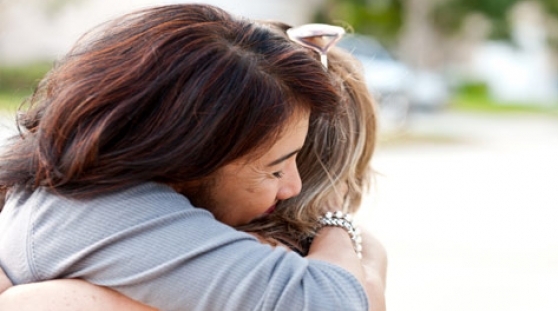Addictions Health Center
Table of Contents

Living with addiction can be debilitating. Whether you are suffering from addiction yourself or someone you care about is suffering from addiction; Addiction makes everyday tasks very difficult. Information on living with various types of addictions is listed below.
Drug Addiction
When a loved one has a drug problem
If you suspect that a friend or family member has a drug problem, here are a few things you can do:
- Speak up. Talk to the person about your concerns, and offer your help and support, without being judgmental. The earlier addiction is treated, the better. Don’t wait for your loved one to hit bottom! Be prepared for excuses and denial by listing specific examples of your loved one’s behavior that has you worried.
- Take care of yourself. Don’t get so caught up in someone else’s drug problem that you neglect your own needs. Make sure you have people you can talk to and lean on for support. And stay safe. Don’t put yourself in dangerous situations.
- Avoid self-blame. You can support a person with a substance abuse problem and encourage treatment, but you can’t force an addict to change. You can’t control your loved one’s decisions. Let the person accept responsibility for his or her actions, an essential step along the way to recovery for drug addiction.
But Don’t:
-
Attempt to punish, threaten, bribe, or preach.
-
Try to be a martyr. Avoid emotional appeals that may only increase feelings of guilt and the compulsion to use drugs.
- Cover up or make excuses for the drug abuser, or shield them from the negative consequences of their behavior.
- Take over their responsibilities, leaving them with no sense of importance or dignity.
- Hide or throw out drugs.
- Argue with the person when they are high.
- Take drugs with the drug abuser.
- Feel guilty or responsible for another's behavior.
Food Addiction
Men and Women who are Compulsive Overeaters will sometimes hide behind their physical appearance, using it as a blockade against society (common in survivors of sexual abuse). They feel guilty for not being "good enough," shame for being overweight, and generally have a very low self-esteem... they use food and eating to cope with these feelings, which only leads into the cycle of feeling them ten-fold and trying to find a way to cope again.
Quitting eating is obviously not a possibility for food addicts or anyone for that matter, so they need to learn how to have a better relationship with food. Medications can be prescribed for depression or anxiety, but patient and effective therapy is the key to compulsive over eating recovery.
Tobacco Addiction
Smoking doesn’t just affect the person who smokes. People who do not smoke are exposed to “secondhand smoke,” which comes from both the exhaled smoke and from the smoke floating from the end of a cigarette, cigar, or pipe. Inhaling secondhand smoke increases a person’s risk of developing heart disease by 25 to 30 percent and lung cancer by 20 to 30 percent. In fact, secondhand smoke is estimated to contribute to as many as 40,000 deaths related to heart disease and about 3,000 lung cancer deaths per year among people who do not smoke. Secondhand smoke also causes respiratory problems in people who do not smoke, like coughing, phlegm, and reduced lung function.
Children exposed to secondhand smoke are at an increased risk for sudden infant death syndrome, acute respiratory infections, ear problems, and more severe asthma. And, believe it or not, dropped cigarettes are the leading cause of residential fire fatalities, leading to more than 700 such deaths each year.
Each year, almost half a million Americans die from tobacco use. One of every five deaths in the United States is a result of tobacco use, making tobacco more lethal than all other addictive drugs combined.
Sex Addiction
Clearly, sexual addiction can cause great harm to relationships. Considering that sex is still a taboo, there may be a great deal of shame associated with sexual addictions. Partners of individuals who have a sexual addiction may be very distraught by their partner's dishonesty and secret life. They may feel a sense of betrayal, and fear the legal, economic, and personal repercussions, they endure as a result of their partner's addiction. To complicate matters further, the great deal of taboo associated with sex may not allow for discussion of the matter, and limits the amount of social support the individual receives.
Alcohol Addiction
Support groups are available to help people who are dealing with alcoholism.
Alcoholics Anonymous (AA)
- Alcoholics Anonymous (AA) is a self-help group of recovering alcoholics that offers emotional support and specific steps for people recovering from alcohol dependence. The program is commonly called a "12-step" approach. There are local chapters throughout the United States. AA offers help 24 hours a day and teaches that it is possible to participate in social functions without drinking.
Al-Anon
- Family members of a person with an alcohol abuse problem often need counseling. Al-Anon is a support group for partners and others who are affected by someone else's alcoholism.
Alateen
- Alateen provides support for teenage children of people with alcoholism.
Several other support groups are available:
- SMART recovery teaches you have to change your thoughts and behaviors to help people with alcoholism recover.
- LifeRing recovery and SOS are two nonreligious programs that offer support for people with alcohol abuse.
- Women for Sobriety is a self-help group just for women.
- Moderation Management is a program for those who want to reduce how much they drink. It recommends abstinence for people who cannot do this.
